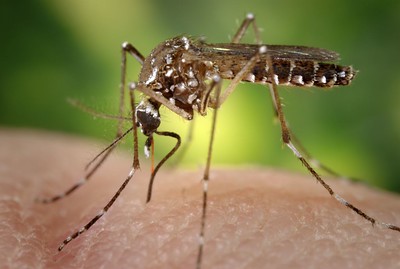
GM/Biotech Crops Report – June 2020
1st June 2020- GM/Biotech Crops Monthly Reports (BELOW) form part of BCPC’s free three-tier Biotech Crops Info service.
- This service also includes a weekly round-up of news from around the globe – see BCPC Newslink GM Crops section.
- Plus – Free access database on over 300 GM/biotech products covering 23 crops in the global market visit BCPC’s GM/Biotech Crops Manual – Register here for free access.
- Already registered? Click here
GM/Biotech Crops Monthly Report June 2020
New way to fight malaria
 Following on from the success of reducing dengue fever by infecting the mosquitoes with Wolbachia, researchers in Kenya have found a microbe that seems to protect mosquitoes against malaria parasites. If the mosquitoes don’t have it, they can’t give it to us but the bites still itch. Full story
Following on from the success of reducing dengue fever by infecting the mosquitoes with Wolbachia, researchers in Kenya have found a microbe that seems to protect mosquitoes against malaria parasites. If the mosquitoes don’t have it, they can’t give it to us but the bites still itch. Full story
Pic: Sanofi Pasteur
Heat-tolerant wheat
Rubisco activase switches on the energy production in photosynthesising wheat leaves when the sun is shining. Now a team at Lancaster University have discovered how to modify this enzyme to make it switch on faster in hot conditions and they believe that this will make the wheat more tolerant of high temperatures. Full Story.
 COVID-19 antibody
COVID-19 antibody
Coronavirus is related to SARS and MERS that have previously infected humans and a team at Utrecht University have found a full monoclonal antibody that prevents SARS from infecting cells in humans also appears to stop COVID-19 from infecting cells. Full Story
 COVID-19 – Know your enemy
COVID-19 – Know your enemy
The University of Bern has inserted artificial chromosomes into brewers yeast so that it assembles copied of the coronavirus. By making subtle changes to the assembled virus genome they can learn it strengths and weaknesses which may identify possible treatments. Full Story
Bacterial canker in tomatoes
The University of California has developed a diagnostic test using DNA screening to ensure that the tomato seed sent out to commercial growers is free of the pathogen that causes bacterial canker. Full Story
 COVID-19 vaccine
COVID-19 vaccine
After producing a virus-like particle in plants, a biopharmaceutical company has now tested a candidate vaccine which has produced a positive antibody response just 10 days after infection. The next stage is to move on to clinical trials in human volunteers. Full Story
Disease-resistant cassava
Kenyan researchers have applied to the Kenyan government to approve a GM strain of cassava that is resistant to cassava Brown Streak Disease that can cause devastating losses in this important crop. Full Story
Longer shelf-life for lettuce
The USDA in America has identified five varieties of Romaine lettuce that are slower to turn brown when cut. Having identified the genes involved, they plan to use these markers to select new breeding lines which exhibit this trait. Full Story
 More COVID-19 vaccines
More COVID-19 vaccines
A clinical trial on 108 human volunteers has shown that it is well tolerated by those receiving the vaccine and that it rapidly generates an immune response. Results after the first 28 days look good but full results from the trial will take another 5 months to gather. Full Story
Emerald Ash Borer
Queen Mary University in London has identified candidate genes that will help protect ash trees from emerald ash borer beetles that could kill billions of ash trees globally. Provided that they can link it to resistance to ash dieback fungal infections, they may be on to something. Full Story
Bumble bee agronomists
When the pollen required to feed their young is in short supply three species of bumble bee nibble the leaves of mustard and tomato plants. This causes the plants to advance the onset of flowering by up to 30 days and supplies an early pollen meal for the bees. When researchers tried to replicate the technique they failed and so the bees obviously know something that we don’t! Full Story
THE LATEST ADDITIONS TO THE GM/BIOTECH DATABASE ARE:
• GHB614 x T304-40 x GHB119 x COT102 – cotton with lepidopteran insect resistance and tolerance of glufosinate and glyphosate approved for food and feed use in the Philippines.
• E12 – potato with reduced asparagine, less reducing sugars and resistance to black spot approved for food and feed production in the Philippines, Japan and Mexico, and for food production in New Zealand.
• X17 – potato with reduced asparagine, less reducing sugars and resistance to black spot and foliar blight approved for food and feed use in the Philippines.
• Y9 – potato with reduced asparagine, less reducing sugars and resistance to black spot and foliar blight approved for food and feed use in the Philippines.
• Bt11 x MIR162 x MON89034 x GA21 – maize with Lepidopteran insect resistance and tolerance of glufosinate and glyphosate approved for environmental use in the Philippines.
FOR INSTANT ACCESS TO GM BIOTECH MANUAL CLICK HERE (Registration required)
Already Registered? Click here to access

